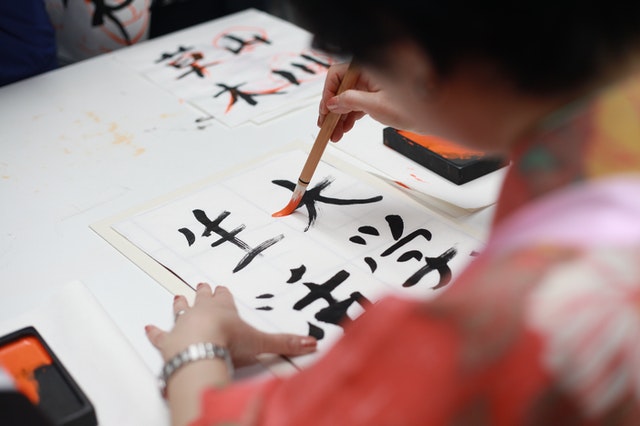Chinese vs Japanese: Which One Is Better For Your Career?
“Is Chinese harder to learn than Japanese?”. “Are Chinese vs Japanese that different?”. “Do the Chinese and Japanese languages have the same writing system?”
What if you were asking all the wrong questions? While all the Chinese versus Japanese queries our students ask us are very interesting, today we want to focus on a different question: Which language, Chinese or Japanese, is better for your career?
While it would be easy to come up with lots of “Chinese versus Japanese” information charts, there is something that both languages have in common, something that it would be dishonest for us not to tell you: both Chinese and Japanese are extremely challenging for English speakers.
For that reason, we firmly believe that it is very important to have a clear objective in mind before you start to learn any of them. If you see language learning not just as a hobby, but as a way of boosting your professional opportunities, you are much more likely to do your best and keep going whenever the process gets too hard.
Access to Large Markets
The first question we should address, then, is which of these beautiful but demanding languages will give you access to strong international markets.
Based on the number of speakers that each of them has, it would seem that Chinese is more global. At the moment, it is estimated that Chinese has 918 million native and 199 million non-native speakers, which makes Chinese the 2nd most spoken language in the world (just behind English) according to Ethnologue.
Japanese, on the other hand, has 128.2 million native speakers and 121,500 non-native speakers, making it the 13th language on the list. The huge number of Chinese speakers, of course, means there’s a wider range of professional opportunities for entrepreneurs and business owners, especially in banking, trading, and manufacturing.
Japanese, while slightly more limited, gives you access to a market as strong and ever-growing as the one in Japan. If you’re in the field of communications, automotive, mobile technology, finances, cosmetics and tourism, then Japanese is the right language for you.
To sum up, though China is a far larger market, Japan is a solid, thriving country to do business in.
→Sign Up Now: Free Trial Chinese Lesson With a Native Speaker Teacher!←
Need to Speak the Language in Business
Remember we said both the Chinese and Japanese languages were very hard to learn for English speakers? Well, the inverse is also true!
This is why, despite the fact that English is taught in the Chinese school system since the first grade, few Chinese people could be considered to be fluent speakers of English.
Actually, though there are currently hundreds of millions of people learning English in China, less than 1% of them are conversational. Of course, most of these scarce English speakers reside in China’s best-known, biggest urban areas, such as Shanghai, Beijing, and Hong Kong. You should have few problems communicating in basic English at sights that see a lot of foreign travelers.
Japanese people, on the other hand, are torn between a belief in the importance of preserving the Japanese language and the need to succeed in a globalised society in which English is a synonym of social status and economic privilege. For years, multinational companies in Japan have been using English as a common corporate language. Studies estimate that, at the moment, around 30% of Japanese speak English at some level. While far from impressive, it is still a much higher number than 1%.
All in all, it would seem that there is a higher need to speak Chinese in China than Japanese in Japan, as the chances of finding Chinese people willing to do business in English are extremely low.

Shot by Miguel Á. Padriñán on Pexels https://www.pexels.com/es-es/foto/gato-japones-lucky-coin-932261/
Chinese or Japanese: Which One Is Easier to Learn?
No matter how many times we tell you to focus on the usefulness of a language above every other criterion, we can’t deny that how much time one invests in learning a language is a crucial deciding factor. The problem with Chinese and Japanese is that there isn’t a clear answer when it comes to which one is harder.
According to the Foreign Service Institute (FSI), Chinese and Japanese are both exceptionally difficult for native English speakers, and learning enough of them to get by in their countries of origin would take the average learner 88 weeks (2200 hours).
So, what makes them so difficult?
In the case of Japanese, its complex writing systems are completely different from the A-to-Z alphabet that we know from English and most Western languages. But what do we mean by “systems”, in the plural form? Surely that must be a mistake. As it happens, it isn’t. Japanese has three different alphabets:
- Kanji, which is made up of more than 15,000 characters.
- Hiragana, that’s used for spelling suffixes and grammatical words.
- Katakana, which is used for emphasis.
As you can imagine, it takes a lot of time and patience to stop mixing them up and making mistakes when you write in Japanese!

Shot by Engin Akyurt on Pexels – https://www.pexels.com/es-es/foto/persona-con-pincel-dibujo-escritura-kanji-1498273/
On the other hand, anyone who wants to be fluent in any Chinese dialect must deal with the fact that it is a tonal language—something you may have picked up if you followed our recommendations on great Chinese tv shows! In Chinese languages, intonation is not only used to convey attitude, but also to alter the meaning of a word. Take Mandarin, the most common variety of Chinese. In this language, there are four tones for the word “ma”, all of which are differentiated with diacritical marks. Depending on how the word is said, “ma” can mean “mother,” “rough” “horse,” or “scold”. For English speakers, learning to use the right tones is one of the most challenging aspects of speaking Chinese!
So, Should I Learn Chinese or Japanese for My Career?
As we said before, if you’re trying to decide which language to study next, questions like “Is Chinese harder to learn than Japanese?” or searches like “Chinese versus Japanese” are not going to be very fruitful if you focus only on the grammatical aspects of each language.
In the end, your choice will depend on what you want to do with the target language. If you’re looking for a global language that will allow you to communicate with billions of people around the world, then Chinese is the right choice. By learning Chinese, you will be able to do business with entrepreneurs and business owners who wouldn’t be able or willing to speak your own language. If, on the other hand, you’re looking for a language that will give you access to a strong, ever-growing market, Japanese might be just what you’re looking for.
→Sign Up Now: Free Trial Japanese Lesson With a Native Speaker Teacher!←
You don’t feel ready to make up your mind just yet? Luckily, we can help. As it happens, we are offering trial lessons on both Chinese and Japanese, at no cost at all. Yes, that’s right. If you reach us now, we’ll pair you up with a native teacher of either language for a free lesson, no strings attached! Who knows? Maybe that’s just what you need to make up your mind about what language you should study next!

